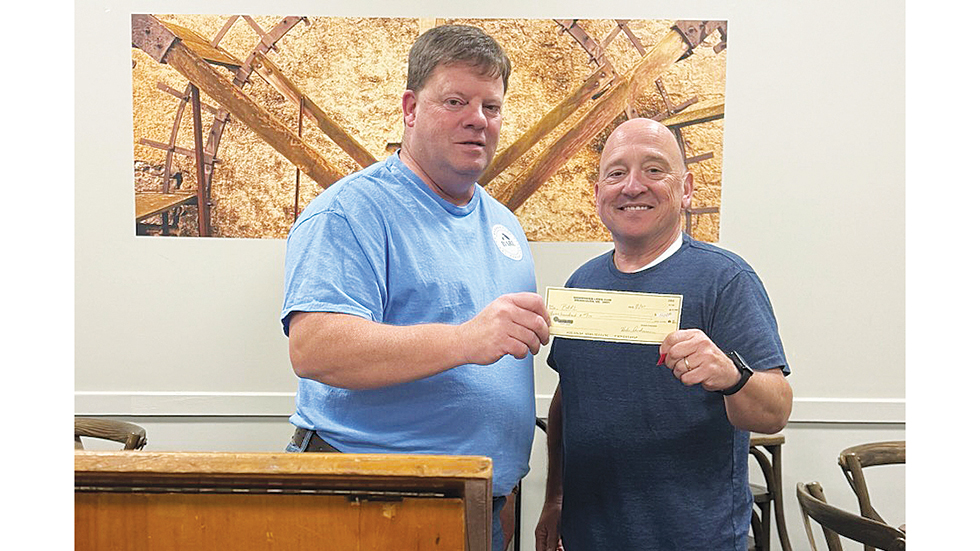Grants help youth courts with programs
Published 6:00 am Tuesday, November 13, 2001
Two federal grants are helping juvenile offenders in Lincoln andCopiah counties get back on the right track while also providingsome valuable services in the process.
Lincoln County Youth Court has received a $14,718 grant toexpand its community service program while Copiah County’s programreceived a $14,303 grant to help continue its program begun lastyear.
The money is provided by the U.S. Department of Justice, Officeof Juvenile Justice and Delinquency Prevention and the grants areadministered by the Mississippi Division of Public Safety Planning,Office of Justice Programs.
Trending
This was the first year for Lincoln County to receive grantfunding. It will be used to pay a part-time person to supervisemale offenders, who will clean up around the courthouse and washbuses for the county school district, said Debra Littleton, thecourt’s intake officer and project director.
Female students do their community service work at MullinsAlternative School. Dr. Dorothy Alexander, who supervises theworkers with the help of School Attendance Officer Bobby Bell, saidthe young people water plants, pick up garbage on the campus andperform other routine maintenance duties.
“It’s really been a very resourceful program,” Alexandersaid.
Alexander said the young people do about 16 hours of communityservice. She was complimentary of the their work habits.
“I don’t have to stand over them. I don’t have to argue withthem, and they don’t argue back,” Alexander said.
Fifteenth District Chancery Court Judge Ed Patten, whosedistrict includes Lincoln and Copiah counties, said he saw a needfor alternative sentencing while he was Youth Court Referee inCopiah County. He wanted to develop a program that would getjuvenile offenders’ attention and give them incentive to clean uptheir behavior before they became repeat offenders and withouthaving to send them to training school.
Trending
“Our objective was to develop programs that would assistcounties from a monetary standpoint and reduce recidivism foryouthful offenders,” Patten said in a release announcing the grantawards.
From her standpoint, Alexander said the program has seensuccess.
“They’re not second-time repeaters,” she said.
Alexander said fighting and shoplifting are the activities thatusually place the juvenile offenders under her supervision in theprogram. She indicated the young offenders have taken a wrong turn,and the program helps them get back headed in the rightdirection.
“They’ve just gotten into a few scrapes,” Alexander said.”They’re not the kind of children who have abnormal behavioralproblems.”
Alexander said she has conferences with the young people whenthey start the program and when they end. The conferences help themknow why they’ve been sentenced to the program and to realize thatthere are consequences for their actions.
“Our conferences really help a lot,” Alexander said.
Juveniles in the Copiah County community service program pick uptrash along roadsides and do cleaning work at churches and HardyWilson Hospital in Hazlehurst. Sharon Watkins, a Utica CommunityCollege campus police officer who also works part-time supervisingteens, also has plans to have the juveniles adopt a section ofhighway to clean regularly.
Copiah County Youth Court Referee Jeff Varas uses the program asa means of getting juveniles’ attention and making them stop andthink about the consequences of their conduct and their choices.Varas said he orders about 80 percent of the juvenile offenders whocome to Youth Court to do community service work.
Since the program was implemented in Copiah County, ” it’s cutdown on the cases that actually have to come before the YouthCourt,” Varas said.





